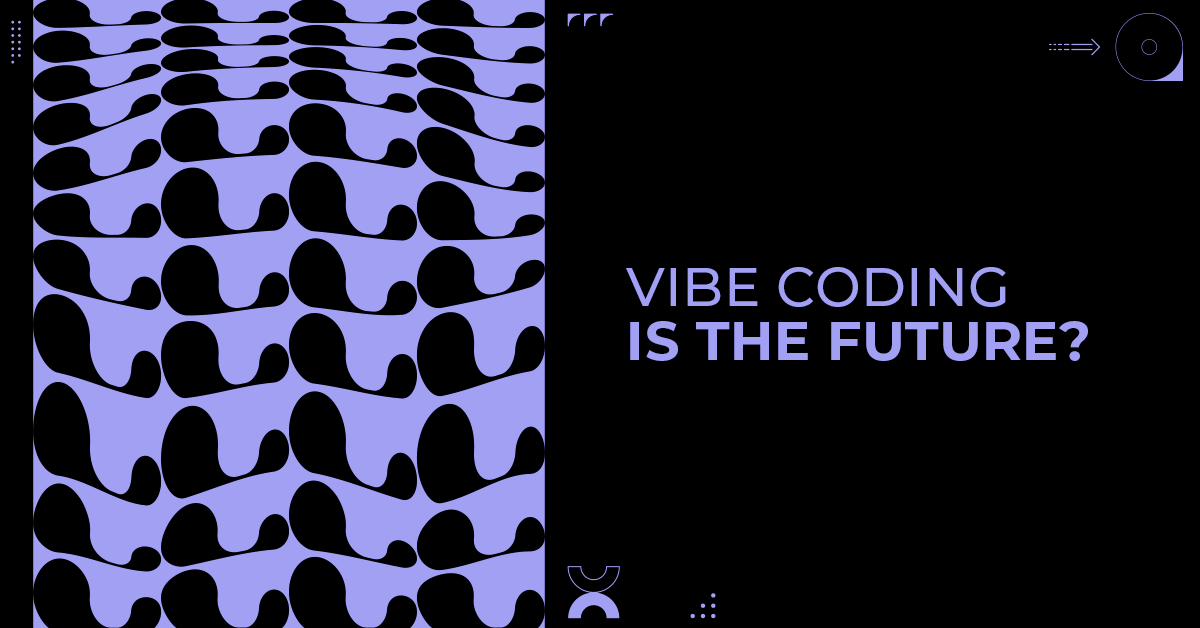Vibe Coding - The Future of Coding with AI or Hype

Recently, the term "Vibe Coding," coined by Andrej Karpathy, a well-known researcher in artificial intelligence, has been gaining popularity. Reading his description of this phenomenon gave me déjà vu. I was transported back to my own beginnings with programming.
What is "Vibe Coding"?
Karpathy describes "Vibe Coding" as an approach where the programmer fully surrenders to the "vibes" of the creative process. They are assisted in this by increasingly clever language models (LLMs), such as those integrated into tools like Cursor Composer.
In this mode, coding becomes more of a conversation with AI than traditional code writing. Asking for minor changes, accepting all AI suggestions without in-depth analysis, pasting error messages without comment, and expecting the AI to fix them on its own – this is the essence of this style. The code grows, often exceeding the author's ability to fully understand it. In turn, encountered errors that the AI cannot fix are worked around or overwritten with random changes until the problem disappears.
Karpathy notes that this approach works well for "one-off weekend projects," but its very nature is, at the least, perplexing.
Karpathy's perspective might not be particularly shocking. For such weekend "clicking around" on the computer, it's even a sensible approach. However, different information spread to the world.
The term quickly became popular. Karpathy wrote about it in early February, and a certain shift in understanding the term occurred in March. Then, people from Y-Combinator (a VC fund from Silicon Valley, which Sam Altman led for a time) had a sit-down to discuss this phenomenon.
They recorded it, released it on YouTube, and perhaps stirred things up a bit by titling it "Vibe Coding Is The Future." The fact that they talked about how everyone will now become a "10x developer" thanks to these tools doesn't help either. It raises expectations somewhat, doesn't it?
Okay, this was supposed to be about how it relates to my past.
Echoes of the Past: My Beginnings with PHP
Vibe coding transported me to the early 2000s, my high school days, and my first, timid steps into the world of website development using PHP.
I'll be honest – I didn't fully understand what I was doing back then. Concepts like project structure, separation of logic from presentation, or good programming practices were completely foreign to me. My method? Find a working piece of code – whether in a book, or on the then-nascent internet, on discussion forums – copy it, paste it, and through trial and error, force it to "somehow" work in my project.
There was something of a "script kiddie" approach to it – using ready-made tools and scripts without fully understanding how they worked, focusing solely on achieving the desired effect. What mattered was that the site worked, displayed dynamic content, and connected to the database.
Did I understand every nuance of SQL code? Did I care about performance or security? Not really. What was important was the "here and now" – a working function, a visible result.
The same thing again?
That's why my "PHP by feel" and Vibe Coding seemed similar. In both cases, we're dealing with prioritizing quick results over deep understanding.
In both, we rely on external "helpers" – back then it was books, forums, and ready-made scripts; today it's advanced AI models. In both cases, there's a risk that the created code becomes a black box, operating in a way not fully understood by its creator.
Will "Vibe Coding" Replace Traditional Programming?
I doubt it. There are voices suggesting that "Vibe Coding," driven by advancements in AI, could revolutionize the industry and largely replace the traditional approach to programming. Personally, I approach these predictions with a healthy dose of skepticism.
Just as my early PHP sites, cobbled together from fragments, were fragile and difficult to maintain in the long run, similarly, code "conjured up" by AI isn't something I would trust.
The "positive vibes" and "it'll somehow work out" approach works great for prototyping, quickly testing ideas, or creating simple internal tools – much like low-code/no-code platforms (which, by the way, were also supposed to leave web developers jobless).
What's Behind the Hype?
It seems to me that Karpathy simply described his experience using AI tools, and it was quite innocent. But… Y Combinator, proclaiming to the world that Vibe Coding is the future, had somewhat different motives, extending beyond pure technology.
Let's remember the context – around the turn of the year, there was a certain slowdown in media enthusiasm for AI. The AI hype had somewhat diminished – there were fewer new developments, and new models weren't captivating.
For an organization like Y Combinator, whose investment portfolio is heavily saturated with AI startups, maintaining a high level of "hype" is crucial. In the last batch, 148 out of 165 startups have something to do with AI. Investor enthusiasm, high expectations, and consequently, high startup valuations are a vital interest for them.
Maybe it was intentional, maybe not, but it seems to have produced an effect that is beneficial for the American startup accelerator.
